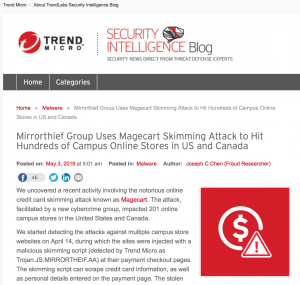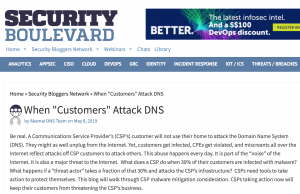Magecart Supply-chain Frenzy Continues With AppLixir, RYVIU, OmniKick, eGain, AdMaxim, CloudCMS & Picreel
Last weekend, security researchers surfaced new supply-chain attacks involving Magecart web-skimmers placed on several web-based suppliers, including AdMaxim, CloudCMS, and Picreel. The breaches were part of a large-scale attack that hit a breadth of providers simultaneously intending to access as many websites as possible.
Web-based supply-chain attacks, which compromise vendors that supply code that adds or improves website functionality, gives attackers access to a wide range of victims at once because the compromised code often integrates with thousands of sites. In this blog, we’ll break down the Magecart skimming activity on these seven providers and detail when and how the compromises occurred, including how some of them could have been far worse.
The same skimmer was used for attacks against both services, which indicates it was the same Magecart Group. The exfiltration domain where stolen card data would have been sent was font-assets.com, which is associated with ww1-filecloud.com, another domain owned by the same attackers.
Both domains have been taken down and/or sinkholed with the help of Abuse.CH and the Shadowserver Foundation.











